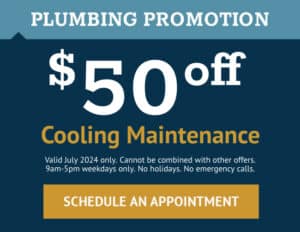If you heat and cool your home with an HVAC system, then filters come between the intake and distribution of air to the rest of your home.
Search online “what’s the best filter for HVAC,” and you’ll receive an overwhelming set of responses, each with a dizzying array of information.
Many people don’t bother with the particulars and instead turn to a local plumbing company that offers heating and cooling services. We’re here to help you get some clarity around air filters for your home.
What are the best air filters for your home HVAC?
The truth is, that the best filter for your heating and cooling system is the one that serves your needs the best.
The first thing you should familiarize yourself with is MERV. MERV, which began in 1987 by the American Society of Heating, Refrigerating, and Air-conditioning Engineers (ASHRAE), stands for Minimum Efficiency Reporting Values. It is a way of measuring the effectiveness of air filters.
Here are the most popular types of air filters on the market today:
Pleated Air Filters
These are made of cotton or polyester folds. Typically, they are more expensive than their fiberglass counterparts, but they do a better job of filtering small particles like dust, pollen, mold spores, and pet dander.
The MERV ratings for these filters are typically between 5 to 8, so they help prevent particulates from recirculating in the air.
HEPA Filters
These filters are favorites for those with respiratory problems or other allergies. If you or someone who lives with you falls in that category, high-efficiency particulate air (HEPA) filters are recommended. Sure, you’ll pay a little more than the fiberglass or pleated air filters, but we think the relief is money well spent. What’s nice about these is that they are the most effective at screening up to 99.97% of mold, pet dander, dust, pollen, mold, pet dander, viruses, bacteria, and other irritants out of the air.
While they are more expensive than fiberglass or pleated air filters, they are the most effective at screening up to 99.97% of dust, pollen, mold, pet dander, bacteria, viruses, and other irritants from the air in your home.
HEPA filters usually will be at or higher than MERV 11. With a higher MERV comes some caution: the higher the MERV, the more difficult it is for your HVAC system to pull in air. As always, check the manufacturer’s recommendations to see which MERV is suitable for your HVAC system.
UV Filters
These filters are by far the most complex of the group. The UV filters used in air cleaners are often built into your HVAC system. By way of ultraviolet light, these filters kill microorganisms such as viruses, bacteria, and other contaminants in the air that passes through them.
If this sounds too good to be true, you’re right! UV filters don’t do the best job of removing dust particles.
How often should HVAC air filters be changed?
It is suggested that HVAC filters be changed every season at the end or beginning. In seasons where you have windows open, you may want to change them at the end of the season. After some time, you’ll better understand which seasons leave your filters the dirtiest.
If you have an HVAC company perform seasonal maintenance, ask them to see the filters when they are swapped.
Flotechs Plumbing & Heating offers maintenance services for residents and businesses in Westchester County. Flotechs is a licensed and insured plumbing company in Yonkers that performs cooling and heating maintenance programs. You can contact us at 914 207-9801 or 1844-FLOTECH (for emergencies).



